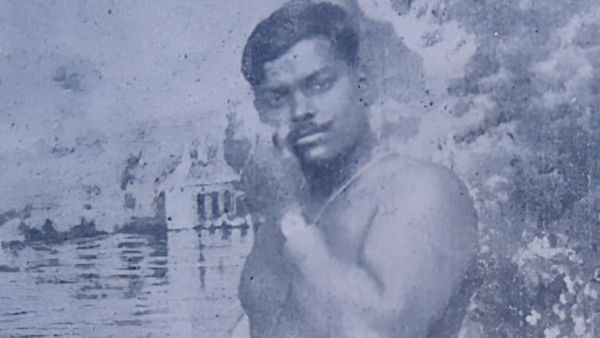
Chandrashekhar Azad stands tall among India's most revered freedom fighters. Celebrated for his unmatched courage and unwavering patriotism, India remembers him on his birth anniversary. The Centre and various political leaders posted on X on Tuesday, celebrating the life of the legend.
Remembering the revolutionary freedom fighter, Chandrashekhar Azad, on his birth anniversary.ChandrashekharAzad @HMOIndia @MinOfCultureGoI @AshwiniVaishnaw @DrLMurugan @PIB_India @airnewsalerts @DDNewslive @PIBHomeAffairs @PIBCulture pic.twitter.com/3ddhF3Dl3w
— Ministry of Information and Broadcasting (@MIB_India) July 23, 2025
Making of a Revolutionary
Born on July 23, 1906, in Bhabhra Village (now Chandrashekhar Azad Nagar, Madhya Pradesh), Chandrashekhar Tiwari was deeply influenced by the Jallianwala Bagh massacre and Gandhi's Non-Cooperation Movement. At just 15, he was arrested for participating in protests and famously declared his name as "Azad" — meaning "Free" — in court. This act marked the beginning of his transformation into a revolutionary icon.
Rise Of Revolutionary
Disillusioned by the suspension of Gandhi's movement, Azad embraced a more militant approach toward independence. He became a leading figure of the Hindustan Republican Association (HRA), which later evolved into the Hindustan Socialist Republican Association (HSRA) under his leadership. He was not just a fighter on the frontlines but the backbone of the organisation, mentoring younger revolutionaries like Bhagat Singh and strategising acts that rattled the British establishment.
How Chandrashekhar Azad Fuelled India's Revolution
- Kakori Train Robbery (1925): Azad played a crucial role in planning and executing the daring heist intended to fund revolutionary activities.
- Assassination of John Saunders: To avenge the death of Lala Lajpat Rai, Azad, along with Bhagat Singh and others, planned and executed the killing of the British police officer.
- Resistance and Sacrifice: Azad eluded capture repeatedly and lived by his vow never to be taken alive by the British. In his final stand at Alfred Park in Allahabad (now Azad Park, Prayagraj) on February 27, 1931, Azad died by his own bullet, remaining true to his name and legacy.
Azad's intrepid spirit and sacrifice cemented his place as a national hero. His fearless actions and commitment to the ideal of a free, just India continue to inspire Indians to stand up against oppression. Numerous memorials, educational institutions, and films celebrate his life, ensuring his story lives on.
-
Ind vs Eng 4th Test Live: England won the toss and decided to bowl, see- Fourth Test playing XI

-
Kranti Gaud achieves this elusive milestone in ODIs

-
Ind vs Eng 4th Test Day 1 Live: The fourth Test starts today, know how long the toss will be? Read below updates of moment

-
Gill lost the toss for the fourth consecutive time, England chose bowling

-
“India made a biggest mistake….” Former India batting Coach pointed out team weakness
